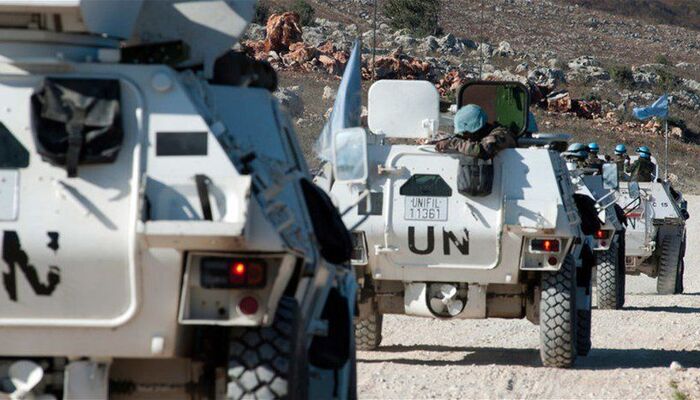The Israeli army had advance knowledge of UN peacekeepers’ presence in southern Lebanon before launching a grenade attack that endangered UNIFIL personnel, according to official statements released by the United Nations Interim Force in Lebanon today. The revelation raises serious questions about Israel’s compliance with international law governing peacekeeping operations.
UNIFIL officials confirmed that Israeli military forces received prior notification about UN peacekeepers conducting road clearance operations in the targeted area. The UN mission had informed Israeli authorities about their scheduled activities southeast of Marwahin village, following standard coordination protocols designed to prevent exactly this type of incident.
The advance notification system exists specifically to ensure peacekeepers’ safety during routine operations. Israeli forces possessed complete awareness of UNIFIL’s presence and activities before deciding to proceed with the grenade attack, making the incident particularly concerning from a legal and operational standpoint.
This coordination failure represents a breakdown in established communication channels that typically prevent attacks on international peacekeeping personnel operating under UN mandates.
UNIFIL statement on attack on peacekeepers clearing roadblocks:
Yesterday morning, Israel Defense Forces (IDF) drones dropped four grenades close to UNIFIL peacekeepers working to clear roadblocks hindering access to a UN position close to the Blue Line.
— UNIFIL (@UNIFIL_) September 3, 2025
UNIFIL Condemns Attack as Serious Legal Violation
The UN peacekeeping mission issued a strongly worded condemnation following the attack, emphasizing that such actions constitute clear violations of international law. UNIFIL’s official statement declared that “any actions endangering UN peacekeepers and assets, and interference with their mandated tasks are unacceptable.”
Read more: Gaza City Endures Relentless Night-Time Bombardment
The organization specifically cited violations of Resolution 1701, the critical UN Security Council resolution adopted at the conclusion of the 2006 war between Israel and Hezbollah. This resolution established the framework for ending hostilities and maintaining stability along the Lebanon-Israel border through international peacekeeping presence.
UNIFIL’s condemnation carries significant weight, as the organization operates under a mandate to monitor cease-fire compliance and maintain peace between the conflicting parties. Attacks on peacekeepers undermine these fundamental objectives and threaten regional stability.
Resolution 1701 Framework Under Threat
The 2006 UN Resolution 1701 serves as the cornerstone of peace arrangements between Israel and Hezbollah, establishing clear guidelines for military conduct and peacekeeping operations. The resolution specifically mandates respect for UN peacekeepers’ safety and their ability to carry out monitoring duties without interference.
Israeli actions against UNIFIL personnel directly contradict these established protocols and represent a serious escalation that could destabilize the entire border region. The resolution’s effectiveness depends on all parties respecting international peacekeeping missions and allowing them to operate freely within their mandated areas.
Violations of Resolution 1701 have historically led to increased tensions and potential renewal of hostilities between the conflicting parties, making compliance essential for maintaining fragile peace agreements.
International Law Implications
The attack on UN peacekeepers while conducting routine road clearance operations constitutes a violation of multiple international legal frameworks. International law provides specific protections for peacekeeping personnel, recognizing their neutral status and essential role in maintaining global stability.
UNIFIL’s confirmation that Israeli forces possessed advance knowledge of the operation makes the attack particularly egregious under international legal standards. Military forces are obligated to take all necessary precautions to avoid harming international peacekeepers, especially when their presence and activities are known in advance.
The incident could prompt broader international scrutiny of Israel’s compliance with UN resolutions and international humanitarian law, potentially affecting diplomatic relationships and peacekeeping operations throughout the region.
Regional Stability Concerns
This attack occurs amid heightened tensions along the Lebanon-Israel border, where UNIFIL peacekeepers serve as a crucial buffer between opposing forces. The organization’s road clearance operations are essential for maintaining access routes and ensuring continued peacekeeping effectiveness.
Interference with UNIFIL’s mandated tasks could compromise the mission’s ability to monitor cease-fire compliance and respond to potential violations by either side. The attack represents not just an assault on UN personnel, but a threat to the broader peacekeeping framework that has maintained relative stability since 2006.
International observers warn that continued attacks on peacekeepers could lead to mission withdrawal, potentially creating a dangerous security vacuum along one of the Middle East’s most volatile borders.
Follow us on Instagram, YouTube, Facebook,, X and TikTok for latest updates
